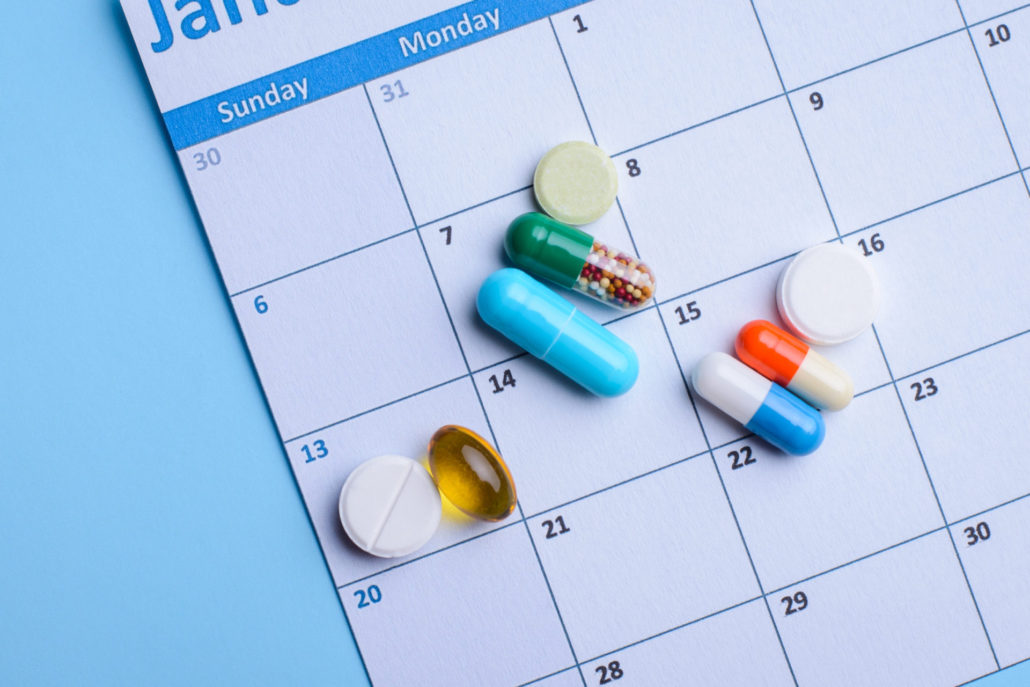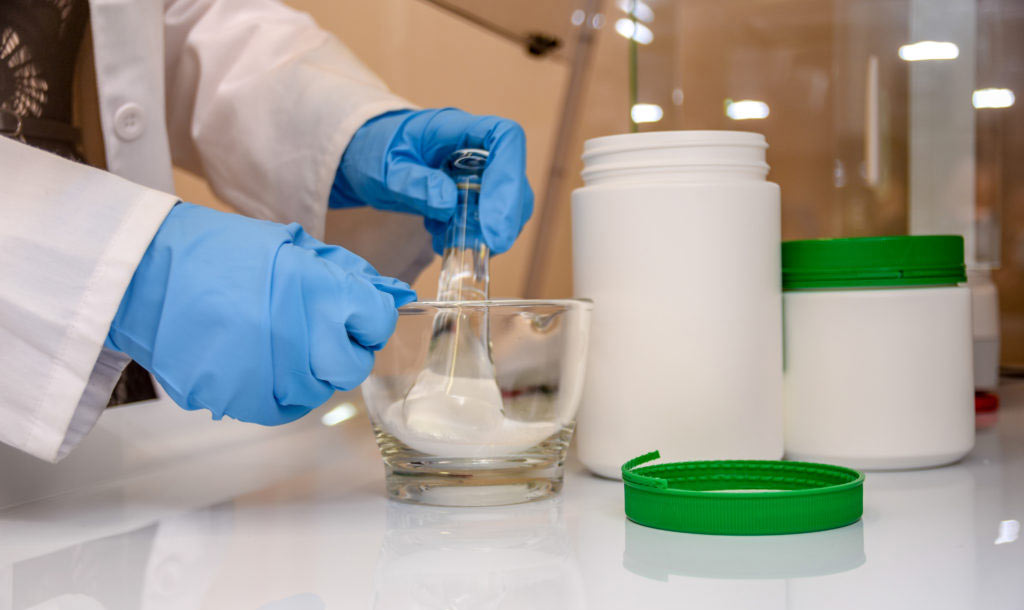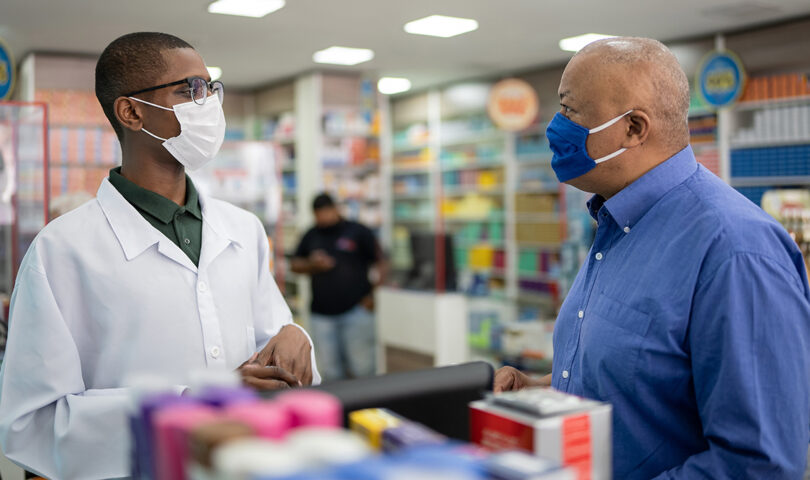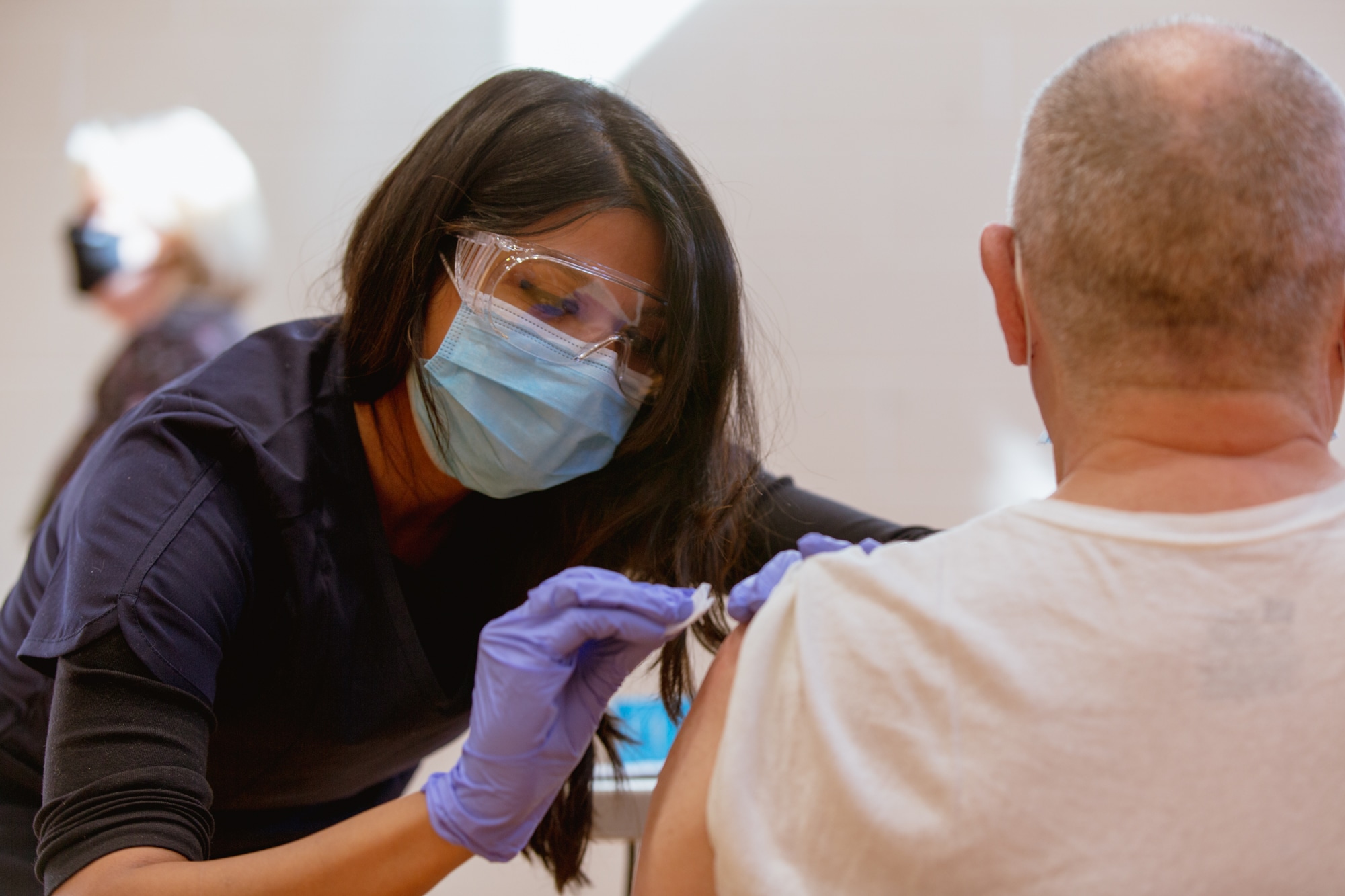Both options are safe and effective for most people. The flu shots themselves are identical, and pharmacists are trained to do the job just like doctors. However, your choice depends on your age, health needs, and personal preferences. This guide will help you understand the key differences between getting your flu shot at a doctor’s […]
Yes, pharmacists can treat many minor ailments without you needing to see a doctor first. Pharmacists are authorized to assess and prescribe medications for up to 19 minor ailments in many places, including conditions like urinary tract infections, conjunctivitis (pink eye), allergic reactions, and skin problems. This guide will show you exactly what conditions your […]
Yes, vaccines are covered by both medical and prescription insurance, but the type of coverage depends on the vaccine and your insurance plan. Most vaccines are covered under your medical insurance (like Medicare Part B or private health plans), while some specific vaccines fall under prescription drug coverage (like Medicare Part D). This guide will […]
Yes, using a local pharmacy offers many benefits over chain stores. You get personalized care, better customer service, and often lower costs. Local pharmacies also offer special services like custom medications and medication counseling that big chains can’t match. This article covers everything you need to know about local pharmacy benefits. We’ll explain how they […]
Yes, you can transfer your prescriptions from one pharmacy to another quickly and easily. The process usually takes 2-3 days and only requires you to provide basic information to your new pharmacy. They handle the rest of the work for you. Moving your prescriptions doesn’t have to be stressful. Whether you’re looking to save money, […]
Yes, you can refill your prescription at CVS without signing in to an account. CVS offers several ways to get your medicines refilled even if you don’t have an online account or don’t want to create one. With over 6.7 billion prescriptions filled annually in the United States, pharmacies like CVS have made the refill […]
Yes, you can choose the right pharmacy for your family member by looking at location, insurance coverage, services offered, and cost. The best pharmacy will be close to home, accept your insurance, and provide good customer service. Finding the right pharmacy for your family member is important for their health and your peace of mind. […]
The pharmacy sends your information to your insurance company, they check if your medication is covered, and then they decide how much you’ll pay. This quick process involves several steps that work together to get you your medication at the right price. In this guide, we’ll break down each step of the pharmacy insurance claim […]
Yes, personalized pharmacy care matters deeply for chronic illnesses. It helps people take their medications correctly, saves money on healthcare costs, and improves health outcomes. When pharmacists work closely with patients who have long-term health conditions, they can spot problems early and help fix them before they get worse. This article will show you how […]
The best way to dispose of old prescriptions is through a drug take-back program. These programs are free, safe, and easy to use. If you can’t get to a take-back site, you can safely dispose of most medicines at home using simple steps. This guide will show you all the safe ways to get rid […]
Yes, pharmacists can prescribe some medications without a doctor, but it depends on where you live and what type of medicine you need. Many states now allow pharmacists to prescribe certain medications like birth control, smoking cessation products, and treatments for minor conditions. This change makes healthcare more accessible for millions of Americans. In this […]
Yes, pharmacists play a vital role in helping people safely use over-the-counter (OTC) drugs. They act as your healthcare guide, helping you pick the right products and use them safely. Pharmacists can provide patients with the necessary information to make proper selections when choosing OTC products and can encourage them to thoroughly read the labels […]
Medication synchronization is a service that lets you pick up all your prescription drugs on the same day each month. Instead of making different trips to the pharmacy, you get everything at once. This simple idea helps millions of Americans take their medications better. It also saves time, money, and helps people stay healthier. Let’s […]
Yes, doctors do recommend compounding pharmacies when regular medications don’t meet your specific needs. However, they only suggest them when truly necessary – like when you need a special dose, have allergies to ingredients, or can’t take pills. Most doctors prefer FDA-approved drugs first, but compounding becomes important when those options won’t work for you. […]
Yes, pharmacists can help you manage high blood pressure. They work with your doctor to check your medications, watch your blood pressure, and teach you how to take care of yourself. Many people don’t know that pharmacists are trained to help with blood pressure problems. They can check your blood pressure, help you understand your […]
Non-dispensing pharmacies are healthcare facilities that provide pharmacy services without actually giving out medications. Instead of handing you a bottle of pills, these pharmacies focus on helping you understand your medications, checking for problems, and making sure you get the best treatment possible. This guide will explain everything you need to know about non-dispensing pharmacies, […]
Yes, medication therapy management (MTM) plans have 5 core components that work together to help you get the best results from your medicines. These parts are: medication therapy review, personal medication record, medication-related action plan, intervention and referral, and documentation and follow-up. This guide will break down each part in simple terms. You’ll learn how […]
Yes, you can tell if a pharmacy is a compounding pharmacy by looking for specific signs, certifications, and services they offer. According to the American Pharmacists Association, about 7,500 of the 56,000 community pharmacies in the United States specialize in compounding services, making custom medications for patients who need something different from regular pills. This […]
Yes, you can get prescriptions without insurance through several proven methods that can save you hundreds of dollars. Many drug companies have patient assistance programs that cover some or all of the costs of their medicines, and there are discount programs, community health centers, and telehealth services that help uninsured patients access affordable medications. Getting […]
Yes, there are many good questions you should ask your pharmacist to make sure you get the safest and most helpful care possible. 41% of Americans report being involved in a medication error, which shows just how important it is to talk with your pharmacist. This guide will teach you the best questions to ask […]
The 5 principles of medication management are a set of safety rules that help people take their medicines correctly and safely. These principles include proper assessment and monitoring, personalized care, patient education, coordinated care, and regular review and adjustment of medications. Taking medicine is something most of us will do at some point. But did […]
Yes, pharmacists play a vital role in helping patients stick to their medicine schedules. They do much more than just hand out pills – they work as health coaches, teachers, and problem-solvers to help patients take their medicines correctly. When patients don’t take their medicines as prescribed, it leads to poor health outcomes and higher […]
Yes, many people do need another COVID booster. The CDC says everyone 6 months and older should get the updated 2024-2025 COVID vaccine. People 65 and older need two doses. Those with weak immune systems may need even more shots. But things are changing fast. Recent policy updates mean healthy young adults might not get […]
No, insurance companies don’t usually cover compounded medications fully because these custom-made drugs aren’t FDA approved and don’t fit into standard coverage lists that insurers use to decide what they’ll pay for. This leaves many people confused and frustrated when they get a big bill for medicines made just for them. But don’t worry – […]
Yes, you can easily transfer a prescription from one pharmacy to another at no cost. Most pharmacies offer free prescription transfers and handle the process for you – it usually takes 2-3 days to complete. This guide will walk you through exactly how to transfer your prescriptions, what information you need, timing considerations, and special […]
Yes, you need specific vaccines before traveling to protect yourself from serious diseases. The vaccines you need depend on where you’re going, how long you’ll stay, and what activities you plan to do. Most travelers need routine vaccines like measles, flu, and hepatitis A, plus destination-specific shots like yellow fever or typhoid. Planning a trip […]
No, it’s not too late to get a flu shot! Even in late winter and spring, getting your flu vaccine can still protect you and your family. Flu season can last until May, and getting vaccinated now is much better than not getting vaccinated at all. This guide will help you understand the best timing […]
Yes, there are several excellent medicines for severe allergies that can give you real relief. The best medicine depends on your specific symptoms, but doctors often recommend starting with nasal steroid sprays like Flonase or Nasacort for daily control, combined with antihistamines like Zyrtec or Allegra for quick symptom relief. This guide covers all the […]
Flu shot for kids costs between $20 and $75 without insurance, but most children can get it for free through insurance plans or special programs. The exact price depends on where you go and what type of coverage your child has. This guide covers everything you need to know about flu shot costs for kids, […]





























